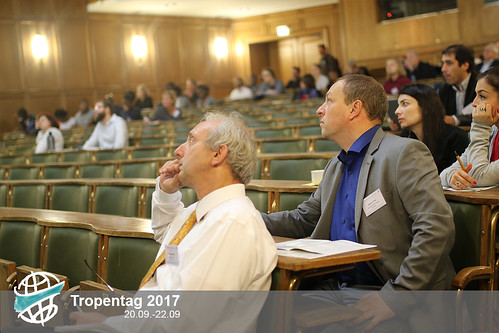Reply to comment
Young Scientists Work to Make a Healthier Soil
Thu, 09/21/2017 - 14:38 — mustamin.fadliAt the first oral presentation on soil and soil fertility today there were five young scientist presenting their work. I found two very interesting. Steffen Werner from the University of Bochum tried to answer if urban agriculture can contribute to food security by reducing nutrient losses. His two years work in Ghana used biochar and water irrigation to reduce nutrient losses. Urban and peri-urban agriculture is characterized by higher input and soil degradation. Excessive use of mineral fertilizer can lead to losses of nutrient through leaching.

However, his results still showed increased nutrient leaching, especially of N, P, Ca, Mg, and Na. He suggested more appropriate irrigation, because that proved effective in lowering leaching .
Irabella Thiemann from the University of Bonn tried to find out if flow paths in maize-paddy rice cropping system can be a hotspot for nutrient cycling. Maize-paddy rice cropping systems consume less water during the dry season. Changing systems from maize to rice led to desiccation cracks in the soil. Her research studied the role of this crack, where anaerobic conditions lead to methane emissions.
On the other hand, this system can lead to the destruction of the paddy system due to high nitrous oxide emission, and leaching. Regardless, she concluded that this system plays an essential role in terms of nutrient cycling. It contains more plant nutrients like carbon and nitrogen.




